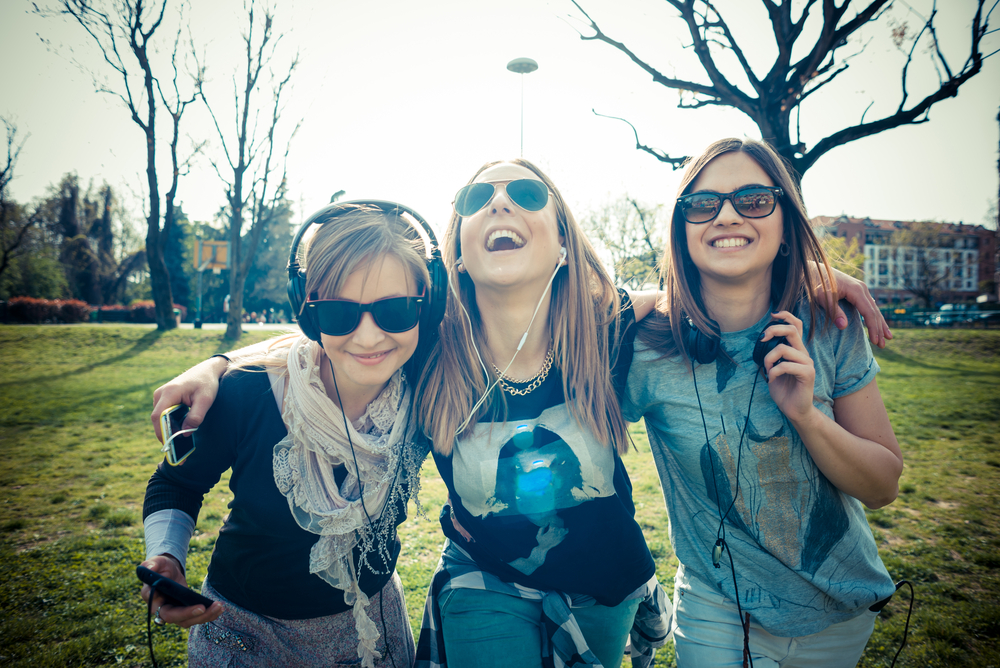
Does Facebook distort our body image?
Facebook offers a fun way to connect with others, share photos, news and events. However, arguably everybody uses Facebook in other subtle, self-esteem boosting ways: to project a more ideal sense of themselves, to receive supportive comments and to gain 'likes' from others.
Sounds warm and wonderful. But there is a flip side. Other people are also presenting their best selves and constant social comparison can lead to self-persecutory thoughts as well as self-improving and assuring ones.
Our negative thoughts provoked by a visit to Facebook can often revolve around body image. There is a known relationship between the frequency of Facebook visits and weight or shape concerns or unhelpful eating patterns. People also report a more negative body image after viewing profile pictures on social media of 'attractive' others.
I wonder whether Facebook's advertising policy could itself be part of the problem. As I was casually scrolling through my newsfeed one day, I was confronted with pictures of slim ladies in bikinis, alongside the promise that I could lose two stone in four weeks! Then, the offer of slim legs, the loss of “belly fat", and more scantily clad women. I was unnerved and confused - had Facebook decided that I needed to go on a diet?! In fact, these adverts crop up all over the internet, jumping out without apparent invitation. The allowance and targeting of such advertising makes me angry. I accept that we cannot control how people interact or compare themselves with others on social media, but profit-making, targeted advertising campaigns deliberately designed to make people insecure just feel so wrong, and unacceptable.
The impact of Facebook advertising diets upon its users has not yet been researched, but the triggering of negative thoughts, feelings and behaviours seems highly probable. It has been known for some time that adverts containing body images increase women's negative mood and body dissatisfaction, particularly when directly engaging in social comparison. They affect us all in different ways - some like me will feel angry, while for others these adverts will provoke more depressive feelings - sadness, worthlessness, inadequacy, guilt, shame – and the reinforcing of eating disordered beliefs or behaviours.
A straw poll of my friends revealed that many people claim to ignore such adverts, believing they merrily skip by without cognisance or consequence. And yet, even if we aren't consciously aware, there is the possibility that we are affected. The recent publication of the controversial Facebook study is a pertinent case in point.
This experiment exposed some Facebook users to newsfeeds biased with positive or negative emotional content and found these user's subsequent postings reflected a significant degree of unconscious emotion contagion. Specific to eating disorders, offline research has shown that 'attractive' bodies, when subliminally presented, prime people to express more jealousy in later unrelated social scenarios, than do 'unattractive' bodies. Furthermore, subliminal stimuli designed to trigger a sense of loneliness can cause women with unhealthy eating attitudes to subsequently eat more, but this can be off-set by unconsciously viewing positive social messages, for example regarding friendship, before or afterwards.
So how do we minimise the negative impact of Facebook on our sense of self and body? It sounds obvious, but limiting the frequency of Facebook visits by setting a specific daily or weekly limit could help. Also, if we can identify those in our friends list who leave us feeling most negative about ourselves, we can edit our newsfeed to remove automatically seeing their updates. We can get positive and use social media to our advantage: I've noticed many people currently focussing on the good in life by updating their status with three daily positives or one positive for #100happydays.
For maximum benefit, ensure positives are based upon relationships that make you feel good or aspects of yourself unrelated to appearance. In general, I find it helps to remind myself that what people present of themselves on Facebook is highly edited. There is a saying doing the rounds: “don't compare your insides with other people's outsides." Twee perhaps, but worth a mental note.
For people with an eating disorder, those who have recovered and their families, B-eat offers information and support.










